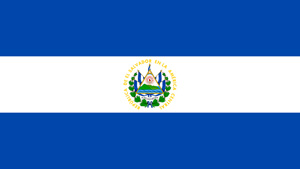
January 8, 2025: Citizen of Liberia finally obtains citizenship after multiple denials over 20 years
January 14, 2025
Facts: In May of 2024, a citizen of Liberia, who had obtained her residency in 1999, came to the firm seeking help with her naturalization application. It had recently been denied, again, because USCIS had determined that she had committed fraud in obtaining her residency, and because she had not obtained her residency lawfully, she was therefore permanently ineligible for naturalization.
The Firm’s Representation: The firm reviewed the facts of our client’s case and preliminarily determined that she should file form N-336, Request for a Hearing on a Decision in Naturalization Proceedings Under Section 336, which is essentially an appeal of the decision to deny an application for naturalization. The firm quickly filed the N-336 application for our client. Then, the firm began gathering even more information about our client’s case from various sources, including immediately submitting a Freedom of Information Act request to obtain our client’s immigration files from the government. The firm did a deep-dive review of her immigration file and other documents collected by the firm. In doing so, the firm noticed several facts which had been overlooked by both our client and other attorneys she had previously hired to work on her case. These facts demonstrated that our client had in fact not committed fraud. With this knowledge in hand, the firm prepared for our client’s N-336 interview by preparing necessary affidavits from both our client and other witnesses to her case. Through the affidavits and our client’s testimony at her N-336 interview, the firm was able to present a compelling case that no fraud had occurred.
Outcome: On or about November 1, 2024, our client’s application for naturalization was reopened, and on January 8, 2025, she became a naturalized citizen of the United States.
Comments: The firm prides itself on meticulously reviewing our clients’ case files to find ways to help our clients achieve their immigration goals. Our client is beyond happy–and so are we.

August 13, 2023 – Citizen of Nigeria is naturalized after appeal to USCIS
September 2, 2023
Facts: On September 7, 2022, a citizen of Nigeria came to the firm for help because USCIS had denied his naturalization application accusing our client of lying during his naturalization interview.
The Firm’s Representation: After talking with our client, the firm came to the conclusion that USCIS made a mistake and recommended that our client appeal the decision. After reviewing the evidence and taking an affidavit from our client and preparing a legal brief, the firm filed an N-336, Request for a Hearing on a Decision in Naturalization Proceedings Under Section 336 later in mid-Setpember of 2022 (within the 33-day appeal deadline).
Outcome: On August 13, 2023, our client was naturalized as a U.S. citizen.
Comments: The employees of USCIS try to do their best, but they sometimes make mistakes. Here, the USCIS officer realized that a mistake had been made and took corrective action and granted the firm’s appeal and naturalized our client.

Citizen of El Salvador was granted U.S. citizenship after three and half years of litigation
September 9, 2017
Facts: In early 2014, a citizen of El Salvador came to the firm seeking help to get his citizenship.
The Firm’s Representation: Our client had been a green card holder for 27 years, but he had been convicted of two counts of Maryland theft in 1996 and 1997. Understandably, our client was nervous about applying for naturalization. In 2014, those theft convictions were considered “aggravated felony” theft convictions and precluded naturalization. So, the firm filed coram nobis petitions for each of his theft convictions in the Maryland state court. Unfortunately, the coram nobis petitions were denied but the firm appealed. During the appellate process, the immigration case law changed such that Maryland theft was no longer being considered an “aggravated felony” theft conviction. So, the firm asked the appellate court to stay the appeal while our client applied for naturalization. Despite extensive legal briefing, our client’s naturalization application was denied. The firm appealed the denial of the naturalization application by filing an N-336 Request for a Hearing on a Decision in Naturalization Proceedings (Under Section 336 of the INA). The firm included additional briefing based on a recent case that had been decided in the Supreme Court, Mathis v. U.S., 136 S. Ct. 2243, 2247 (2016), that supported our client’s position.
Outcome: On September 9, 2017, our client was sworn in as a citizen of the United States.
Comments: This case was a very gratifying win for the firm because it was such a hard-won fight. The firm believed that our client deserved citizenship and both the firm and our client never gave up, despite the numerous setbacks.

Citizen of India receives U.S. citizenship with theft conviction
August 21, 2015
Facts: In March 2014, a citizen of India sought a second opinion on his ability to naturalize even though he had a theft conviction.
The Firm’s Representation: This case should not have been difficult. The difficulty for the firm was that our client had received an opinion from a highly respected and high experienced immigration attorney that our client should under no circumstances attempt to naturalize. The prior immigration attorney had warned our client that if he tried to naturalize, he would be denied and placed in removal proceedings and deported. After quite a lot of discussion, the firm convinced our client that this prior advice was incorrect and the firm advised our client to file an application for naturalization, which the firm did. Making matters worse, our client’s interviewing officer at USCIS was a recent transfer from California and was not familiar with Maryland law. The firm received two disturbing Requests for Further Evidence (RFE) from USCIS. The firm responded to the RFEs and patiently explained to USCIS that our client was indeed eligible for naturalization. Nevertheless, our client was nervous the entire time, based on the initial advice from his prior immigration attorney and based on the RFEs from USCIS.
Outcome: On August 21, 2015, our client became a citizen of the United States.

Citizen of Yemen obtains citizenship after successful coram nobis petition
May 15, 2015
Facts: In January 2013, a citizen of Yemen entered the United States and was stopped at the border and placed in secondary inspection. Even though the citizen of Yemen had a green card, he had an 16-year old conviction for the Maryland offense of second degree assault. Border patrol released the citizen of Yemen, but he was shaken nevertheless. He sought the firm’s help.
The Firm’s Representation: In 2013, the Maryland offense of second degree assault was potentially an aggravated felony under the INA. In our client’s case, he had been sentenced to 18 months incarceration, which could have triggered an “aggravated felony” classification. The firm had no choice but to seek a belated sentence reduction by way of a coram nobis petition. Luckily, our client had no further brushes with law enforcement which always helps. The coram nobis petition was granted and our client received a probation before judgment. The firm subsequently filed an application for naturalization.
Outcome: Our client is now a citizen of the United States. This case ended up being one the most gratifying cases the firm has ever worked on. When our client first approach us, he was in medical school. Eventually, our client was approaching graduation from medical school and he was applying for residency positions. Even though our client was at the top of his class in a prestigious medical school, his conviction for second degree assault was hindering any residency program from offering him a position. After our client’s assault conviction was re-sentenced as a probation before judgment, the firm received a call from our client. He asked whether he had to indicate on his residency applications that he had a conviction. The firm told our client that, under Maryland law, a probation before judgment cannot be considered a conviction for any purpose (although for immigration purposes, a probation before judgement still remains a conviction). So, our client started sending out his residency applications that indicated that he had no convictions and subsequently residency offers started pouring in. Our client eventually accepted a residency position at prestigious hospital in Baltimore, Maryland and he is on his way to becoming a full-fledged medical doctor. Everybody makes mistakes and everyone deserves a second chance. The firm was really happy to be able to help our client reach his goals.

Citizen of Portugal and Mexico granted citizenship by operation of law
December 29, 2014
Facts: In January 2014, a citizen of Portugal entered the United States on the Visa Waiver Program and came to the firm because she thought she might be a citizen of the United States.
The Firm’s Representation: Citizenship by operation of law can be very tricky, especially in this case. In this case, our client’s father was a Portuguese national who came to the United States as a child and later naturalized before our client was born. While in Mexico, our client’s father had a child – our client – with a Mexican woman, but they were not married. They eventually got married about 20 years later, in Portugal. Our client was actually born in Mexico, but obtained Portuguese citizenship when she was a teenager. Luckily, that process included documentation from our client’s father that professed financial support and paternity of our client, all of which occurred before our client turned 18 years of age.
Outcome: On December 29, 2014, our client was given a certificate of U.S. citizenship.

